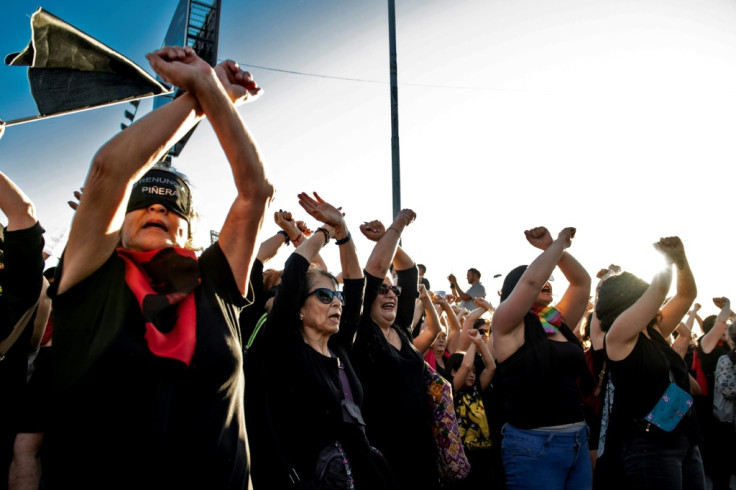
São Paulo, Brazil – After getting divorced in 2018, Andrea, a manicurist from the Brazilian city of São Paulo met a man on a dating app.
After a few months of dating, the man became excessively jealous and started behaving violently with her, including complaints about the clothes she wore and her social media habits.
Andrea -- who agreed to share her story with The Latin Times under the condition of not using her full name for privacy concerns -- soon decided to end the relationship. The person took the decision poorly and soon began stalking her, showing up at her salon and calling and sending her messages multiple times a day.
Andrea blocked her ex on social media and had some of her male friends call him to get him to stop stalking her, but she stopped short from calling the police.
"I didn't know whether I could go to the police," she told The Latin Times. "I didn't know what they could do in this case, how they could help me." Andrea was unaware that under Brazilian law, for example, she could request a protection order to prevent her ex-boyfriend from contacting her.
"I thought protective measures only served in cases of physical violence," she said. "As my ex-boyfriend never hit me, I thought I had nothing to do but wait for him to stop."
Andrea's ex eventually quit stalking her and today the two don't have any contact. But her case highlights what women's rights experts consider to be a staggering lack of education about laws meant to protect Brazilian women from violence.
In Brazil, just two in 10 women are aware of their rights under the Maria da Penha Law, which increased punishments for convicted domestic violence offenders in 2006.
The law was named after a woman who filed a complaint against Brazil in the Inter-American Commission on Human Rights (IACHR) for failing to rule on a 15-year-old domestic violence case in which her husband shot her, leaving her paraplegic.
The Data is part of a recent survey of gender-based violence carried out by a Senate research institute with support from women's rights NGOs.
Vitória Régia da Silva, president of Gênero e Número, a Brazilian NGO focused on gender and race issues who participated in the study, agreed that there is a lack of education surrounding the Maria da Penha Law, which, in addition to physical violence, also protects women against various kinds of gender-based violence such as psychological and property-related violence.
What's more, she said, many women don't realize they are being victimized because of this lack of education. "If society has difficulty in perceiving violence [against women], knowledge of a specific law is many steps higher even if the Maria da Penha Law has existed for 18 years," she told The Latin Times.
Silva said that more action must be taken to educate women not only about the law, but also about the resources available to protect them, like domestic violence centers known as Casas da Mulher Brasileira (Brazilian Women's Houses).
"The law can only help after the woman understands that she is a victim of violence. Therefore, working with information in different ways is essential and the media has a very important place to expand that communication," Silva said.
She added that because Brazil is such a large, diverse country, "each territory requires different communication, to be really effective. For example, there are places with less internet access and then you need to think about the best way to reach these women."
Violence against women in Brazil
In Brazil, eight women are victims of violence every 24 hours. The country recorded 1,460 femicides last year, and, from January to June of 2023, 34,000 rapes were reported -- a 14.9% increase compared to the same period in 2022, according to the Brazilian Public Security Forum, an NGO that gathers data on crime in the country.
However, the actual number of violent crimes committed against women is estimated to be much higher: a Senate survey revealed that last year just 61% of women who suffered violence reported it to authorities.
According to Isabela Sobral, a data center supervisor for the Brazilian Public Security Forum, better education surrounding the Maria da Penha Law could help save lives.
"It is important that this tool is actually used," she said. "In several states, there are studies that show that women who are victims of femicide, for the most part, did not have urgent protective measures against their aggressor." The types of measures guaranteed under the law include removing the aggressor from the home, prohibiting contact with the victim, restrictions on carrying weapons, among other measures meant to prevent subsequent violence.
"The law introduces urgent protective measures, which are fundamental to preventing violence and femicide," Sobral reiterated.
© 2024 Latin Times. All rights reserved. Do not reproduce without permission.







